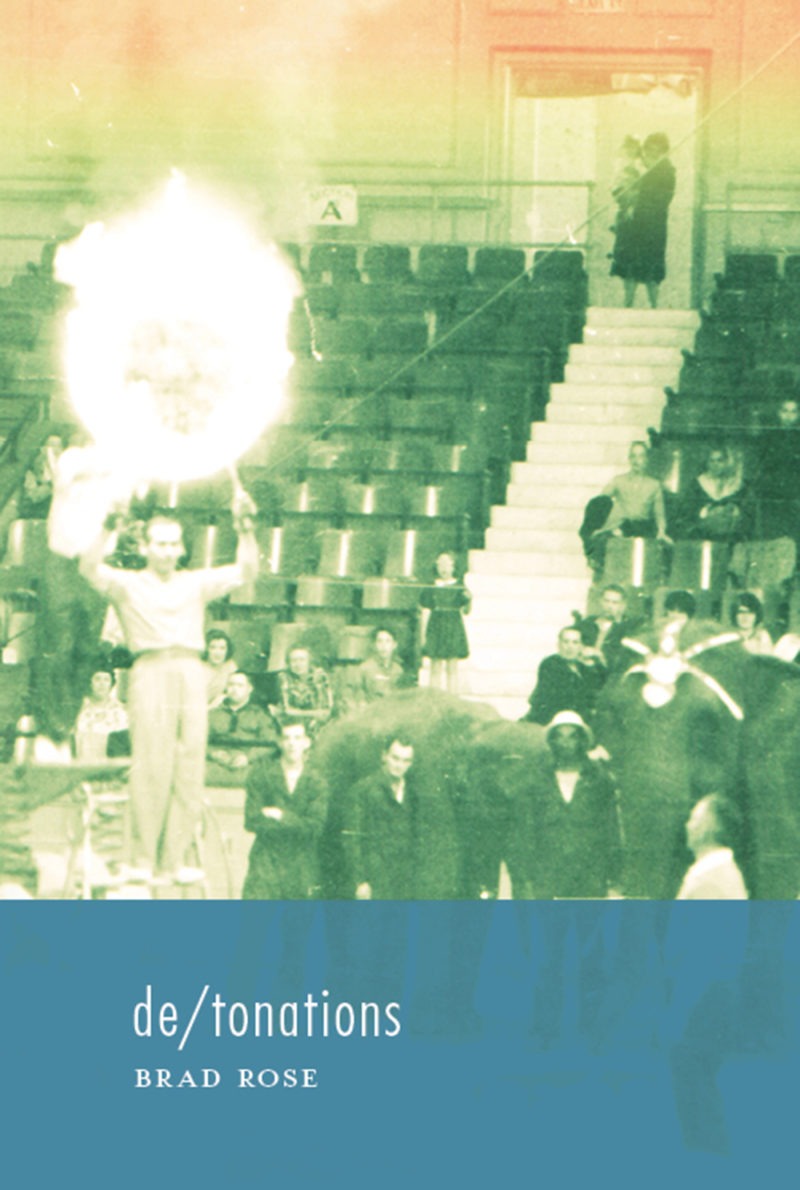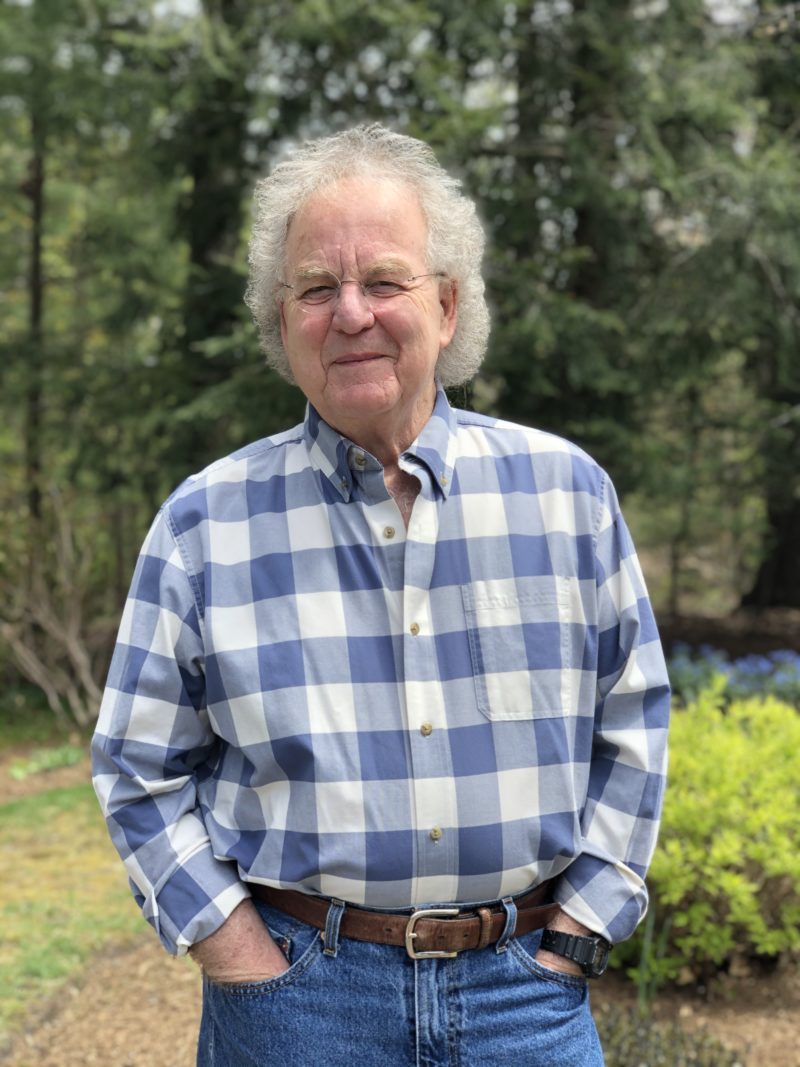When did you first encounter poetry? How did you discover that you wanted to write poems?
I first became aware of poetry in 7th grade, when I was introduced to it by my 7th grade junior high school English teacher. I was about 13 years old, and I very much liked William Ernest Henley’s “Invictus.” About that time, a family friend’s death prompted me to write an elegiac poem, and from then on, I realized I could address many of my feelings through writing poetry. I continued to write through high school and into my undergraduate years at UCLA where I was an English major. After college, my poetry writing tapered off, and for about 30 years—years in which I was completing graduate school, establishing my career, and helping to raise my daughter—I stopped writing entirely. I began to write again about 15 years ago, when I began to have a little more free time, and I felt that poetry was something I could comfortably and creatively return to.

Do you have a writing routine? A favorite time or place to write?
I’m fortunate; I’m now able to write almost every day, although I sometimes take a few days off to recoup and gather new material for my next poem. I write pretty much in the same place all the time. I have an office at home, and I tend to write there using my computer, although I find it necessary to take breaks, go for a walk, move around a bit, just to ruminate and reflect on what I’m working on. I tend to write during the daylight hours. I keep a notebook by my bedside in which I jot down occasional dream inspirations.
Where do your poems most often “come from”—an image, a sound, a phrase, an idea?
Over the years the sources of my poems have changed. In the beginning much of my writing was based on autobiographical experience, which I attempted to deal with via free verse, lyrical poems. In recent years, I’ve become interested in writing poems that aren’t about me, not about a confession of my feelings or my experiences, poems that are anti-sentimental and surreal. I’m interested in found text, overheard language, and American idioms, all of which I use in my pieces to suggest the identity of the poem’s speaker. I’ve shifted to mainly writing prose poems because about 8 years ago I felt that I’d reached the end of what I felt I could accomplish with the lyric, lineated poem. I wanted a form that would not depend upon my own feelings and experiences, but on another (imaginary) person’s, hence persona poems. I wanted to employ a form that felt more congenial to humor and playfulness, but that could accommodate moments of gravitas, too. So, I began writing prose poetry, micro fiction, and flash fiction. I like the appearance of the block paragraph as it tries to contain the disorder and turmoil of the speakers who appear in many of my prose poems. I also prefer the sentence to the line as the unit of measure. I think prose poems are more approachable, more “democratic,” than much of lineated contemporary poetry because of their ease of reading. Even people who don’t like poetry can approach a prose poem, or micro-fiction, because these look like almost everything else they read. I think the unassuming appearance of prose poems adds to their disruptive and startling moments.
Which writers (living or dead) have influenced you the most?
My list of influences and inspirations is long and has grown over the years. In high school, I was enamored with e.e. cummings, Richard Brautigan, Kenneth Patchen, and especially Ernest Hemingway. In college, I was interested in Yeats, W.S. Merwin, Shelly, and Keats. There have been a range of writers that continue to inform my writing: S.J. Perelman, John Ashbery, Anne Sexton, Rilke, Joy Williams, Anne Carson, Lydia Davis, Paul Celan, Felix Feneon, Charles Simic, and, of course, Monty Python.
What excites you most about your new collection?
I have two books that have recently been released: Momentary Turbulence, published by Cervena Barva, and de/tonations, published by Nixes Mate Books. Both of these books are composed primarily of prose poems. I am honored that they were published and pleased that they exist. The L=A=N=G=U=A=G=E poet, Ron Silliman said of Momentary Turbulence, “The paragraphs in Momentary Turbulence are perhaps the closest we will get to that razor edge where prose poem and story balance perfectly. They also highlight the many ways in which the works in verse here recall Pound’s dictum that poetry must be as well written as the best prose. If it didn’t have such a big Yankee heart, Momentary Turbulence might also be the answer to the question of what a Robert Bolaño raised north of the border would look like: blue collar pomo, searing, with a noir eye. But there is a twinkle in that sad smile, a delight in the beauty of a toxic sunset that comes from knowing just how long night will last.” About de/tonations the Massachusetts-based poet Margaret Young wrote, “These are mostly prose poems, with qualities associated with the tradition: a tendency towards surrealism and humor, a penchant for twists and leaps that land readers far from where they began. There’s also a blending of humor and menace, and a generous love for American idioms and settings. The speakers of Rose’s poems harbor conspiracy theories, seethe with violent tendencies, mangle clichés and invent bizarre similes. The poems reel from unanswerable questions to flashes of wisdom to twisted aphorisms, and leave us gazing into the abyss, laughing. This is a delightful and ominous book.”
In both of these books I have tried to follow three precepts that guide my writing: 1) “Every view of things that is not strange is false.” — Paul Valéry, 2) “The function of the imagination is not to make strange things settled, so much as to make settled things strange.” — GK Chesterton, and 3) “The ugly may be beautiful, but the pretty, never.” — Paul Gauguin.

Cotton-Candy Pink
by Brad Rose
At the laundromat, I can hold my breath for a half-an-hour. I don’t know where one thought ends and another begins. Felicia has different colored wings. One is cotton-candy-pink. Once, she took me dancing. It was my birthday. The music was everywhere, but I noticed my thoughts were accelerating like it was too late. Some of them were talking in a secret language. Sometimes thoughts are like other people. They have their lives, while I’m having mine. No big deal. At the dance, it was a nice cross-section of people. They are all wearing clothes and shoes. Felicia said, Ray, you look sad as a mall Santa. I told her I like to dance, but I had some things I needed to do. A Sly and the Family Stone tribute band was taking everybody higher, so I went outside. In the dark, the city crouched down, and the buildings looked like a crowd of appliances. It was hot and I heard sirens in the distance. I wondered what was going on in the sky. They say when you sleep your muscles become paralyzed to stop you from acting out your dreams. I wanted to go back inside to dance, but the stars seemed lost, like they were moving to somewhere new and needed someone to say farewell. Felicia came outside to smoke a cigarette, and she said, Oh, here you are, like I was a surprise. Tonight, she wore a flame red wig. There were a lot of things I could have said when her two sleeping kids died in that Christmas blaze, but I didn’t. I’m still not sure what color her real hair is.

Brad Rose was born and raised in Los Angeles and lives in Boston. He is the author of three collections of poetry and flash fiction, Pink X-Ray (Big Table Publishing, 2015), de/tonations, (Nixes Mate Press, 2020), and Momentary Turbulence (Cervena Barva Press, 2020). WordinEdgeWise, from Cervena Barva Press, is forthcoming in 2022. Six times nominated for a Pushcart Prize, and three times nominated for the Best of the Net Anthology, Brad’s poetry and fiction have appeared in, The Los Angeles Times, The American Journal of Poetry, New York Quarterly, Clockhouse, Cloudbank, Lunch Ticket, Hunger Mountain, Sequestrum, Folio, 45th Parallel, The Baltimore Review, Steam Ticket, Into the Void, Right Hand Pointing, Blink Ink, and other publications. His story “Desert Motel,” appears in Best Microfiction, 2019. He is also the author of six poetry chapbooks, including the recently released Collateral, all of which are published by Right Hand Pointing. His website is: www.bradrosepoetry.com Selected readings can be heard at http://bradrosepoetry.com/audio-readings/ A complete list of publications is available at: http://bradrosepoetry.com/2019/03/a-list-of-publications/
